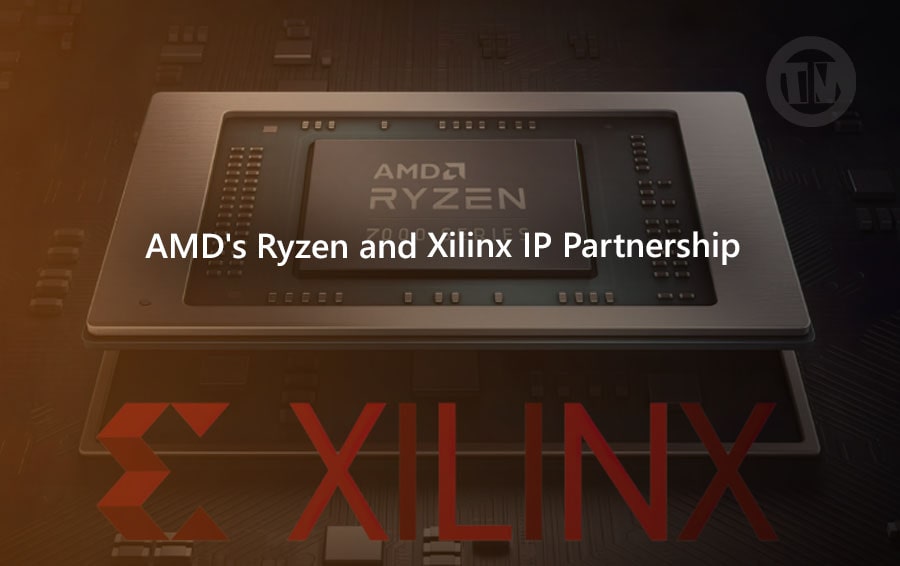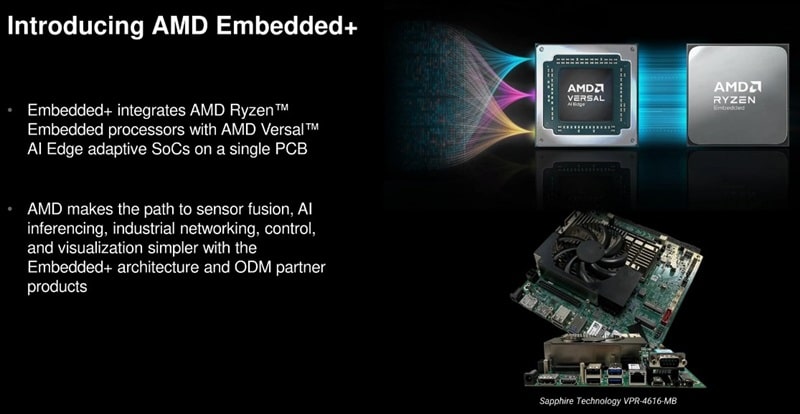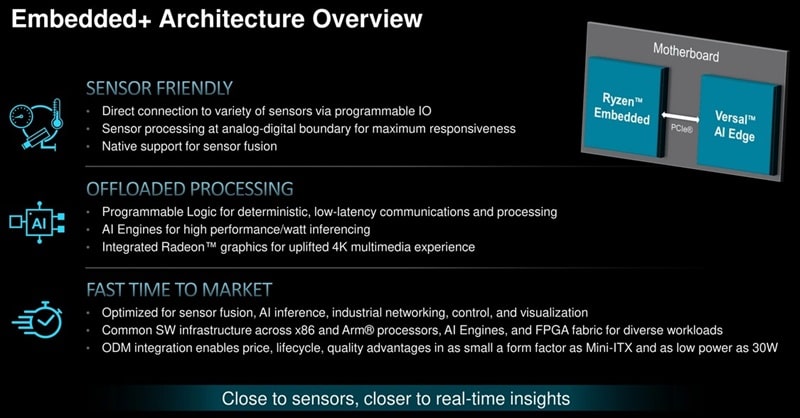
Embedded computing refers to the integration of computing systems into various devices and equipment, enabling them to perform specific tasks efficiently and effectively. These embedded systems are designed to be compact, reliable, and power-efficient, making them ideal for a wide range of applications across industries such as automotive, healthcare, aerospace, and telecommunications.
The importance of embedded computing lies in its ability to enhance functionality, improve performance, and enable advanced features in devices that we use in our daily lives.
The Growing Importance of AMD’s Ryzen Processors
AMD Ryzen processors have gained significant attention and popularity in recent years due to their exceptional performance and value for money. These processors are designed with advanced multi-core architecture, high clock speeds, and efficient power consumption, making them ideal for embedded computing applications.
The Ryzen processors offer superior processing power, enabling devices to handle complex tasks and computations with ease. Additionally, they provide excellent multitasking capabilities, allowing multiple applications to run simultaneously without compromising performance.
A Game-Changer in Embedded Computing

The partnership between Xilinx and AMD Ryzen has brought about a revolutionary change in the embedded computing industry. Xilinx is a leading provider of programmable logic devices and IP cores that enable the customization and optimization of embedded systems.
By combining the power of AMD Ryzen processors with Xilinx’s IP cores, developers can create highly efficient and flexible embedded solutions tailored to specific requirements.
Benefits of AMD Ryzen and Xilinx IP Partnership

The partnership between AMD Ryzen and Xilinx IP brings numerous benefits to the embedded computing industry. Firstly, it offers improved performance and power efficiency. The high-performance cores of AMD Ryzen processors combined with Xilinx’s IP cores allow for faster data processing and reduced power consumption, resulting in enhanced overall system performance.
Secondly, the partnership enhances security features in embedded systems. With the increasing concern over cybersecurity threats, it is crucial to have robust security measures in place.
AMD Ryzen processors, in combination with Xilinx IP cores, provide advanced security features such as secure boot, secure firmware updates, and hardware-based encryption, ensuring the integrity and confidentiality of data.
Lastly, the partnership offers increased flexibility and scalability. Xilinx’s IP cores enable developers to customize and optimize embedded systems according to specific requirements. This flexibility allows for the creation of highly tailored solutions that can be easily scaled up or down as needed, making them suitable for a wide range of applications.
Applications of Embedded Computing
Embedded computing finds applications in various industries. In the automotive industry, embedded systems are used for advanced driver assistance systems (ADAS), infotainment systems, and engine control units. In healthcare, embedded systems are utilized in medical devices such as patient monitoring systems, implantable devices, and diagnostic equipment.
The aerospace industry relies on embedded computing for flight control systems, navigation systems, and communication equipment. Telecommunications also heavily relies on embedded systems for network infrastructure, routers, and switches.
Specific use cases of the AMD Ryzen and Xilinx IP partnership include autonomous vehicles that require powerful processors for real-time data processing and decision-making. Medical imaging devices benefit from the high-performance capabilities of AMD Ryzen processors combined with Xilinx IP cores to provide accurate and fast image processing.
Industrial automation systems utilize embedded computing to control and monitor manufacturing processes efficiently.
The Future of Embedded Computing
The future of embedded computing looks promising with several emerging technologies on the horizon. One such technology is edge computing, which involves processing data closer to the source rather than relying on cloud-based solutions. Edge computing reduces latency, improves response times, and enhances privacy and security.
Another trend is the integration of artificial intelligence (AI) into embedded systems. AI algorithms can be implemented on AMD Ryzen processors with Xilinx IP cores to enable intelligent decision-making capabilities in devices. This opens up possibilities for advanced robotics, smart homes, and autonomous systems.
Predictions for the future of embedded computing include the widespread adoption of 5G technology, enabling faster and more reliable connectivity for embedded systems. The Internet of Things (IoT) will continue to grow, leading to an increased demand for embedded computing solutions that can handle the massive amounts of data generated by connected devices.
Challenges and Opportunities in Embedded Computing
The embedded computing industry faces several challenges, including the need for increased power efficiency, improved security measures, and the ability to handle large amounts of data. As devices become more complex and interconnected, ensuring compatibility and interoperability between different embedded systems also becomes a challenge.
However, these challenges present opportunities for growth and innovation. Companies that can develop energy-efficient solutions, robust security features, and scalable architectures will have a competitive advantage in the market.
Additionally, advancements in semiconductor technology and the availability of powerful processors like AMD Ryzen, combined with customizable IP cores from Xilinx, provide developers with the tools they need to overcome these challenges and create cutting-edge embedded systems.
Conclusion
The partnership between AMD Ryzen processors and Xilinx IP cores has revolutionized the embedded computing industry. The combination of high-performance processors, customizable IP cores, and advanced security features offers numerous benefits such as improved performance, enhanced security, and increased flexibility.
Embedded computing finds applications in various industries such as automotive, healthcare, aerospace, and telecommunications. The partnership between AMD Ryzen and Xilinx IP enables specific use cases in autonomous vehicles, medical imaging devices, and industrial automation systems.
The future of embedded computing looks promising with emerging technologies like edge computing and AI integration. Challenges in power efficiency, security, and data handling present opportunities for growth and innovation.
Overall, the partnership between AMD Ryzen processors and Xilinx IP cores has paved the way for a promising future in embedded computing, enabling the development of highly efficient, secure, and customizable solutions for a wide range of applications.
FAQs
What is embedded computing?
Embedded computing refers to the use of computer systems in non-computer devices such as cars, medical equipment, and industrial machines.
What is AMD Ryzen?
AMD Ryzen is a line of high-performance processors designed for desktop and laptop computers.
What is Xilinx IP?
Xilinx IP refers to the intellectual property developed by Xilinx, a company that specializes in programmable logic devices and software-defined solutions.
What is the partnership between AMD Ryzen and Xilinx IP?
The partnership between AMD Ryzen and Xilinx IP involves the integration of Xilinx’s programmable logic technology into AMD’s Ryzen processors, creating a new class of high-performance computing solutions for embedded systems.
What are the benefits of this partnership?
The partnership between AMD Ryzen and Xilinx IP offers several benefits, including increased performance, flexibility, and scalability for embedded computing applications. It also allows for the development of more efficient and cost-effective solutions for a wide range of industries.
What industries will benefit from this partnership?
The partnership between AMD Ryzen and Xilinx IP is expected to benefit a wide range of industries, including automotive, aerospace, defense, medical, and industrial automation.






